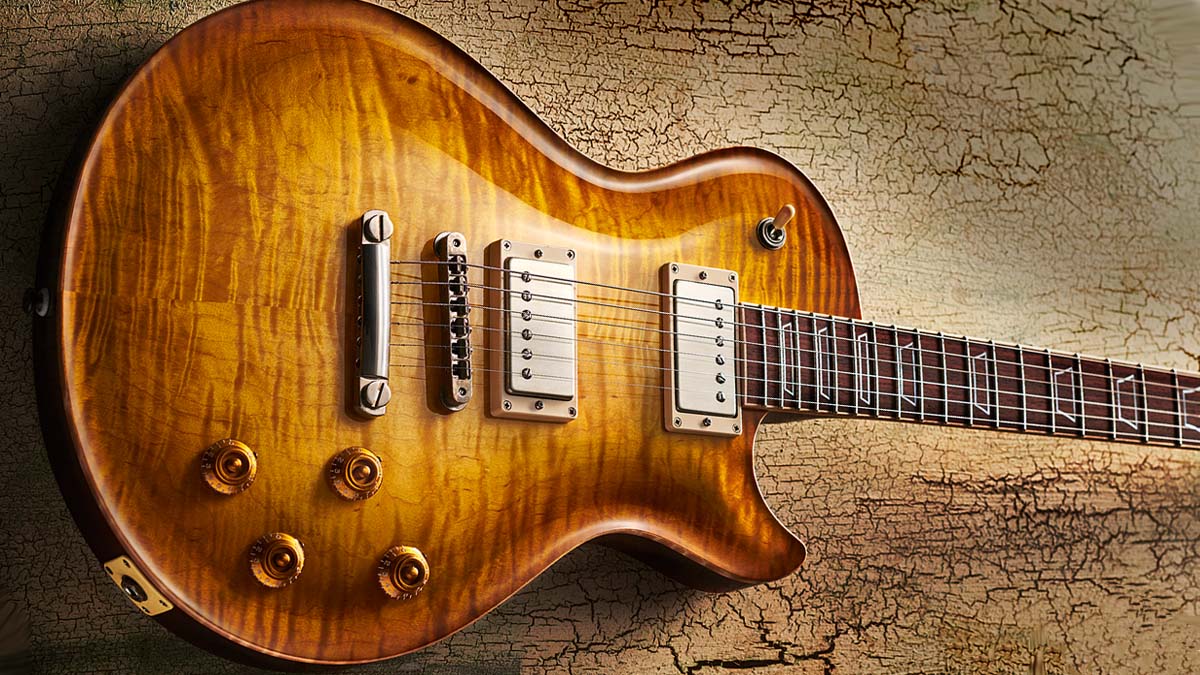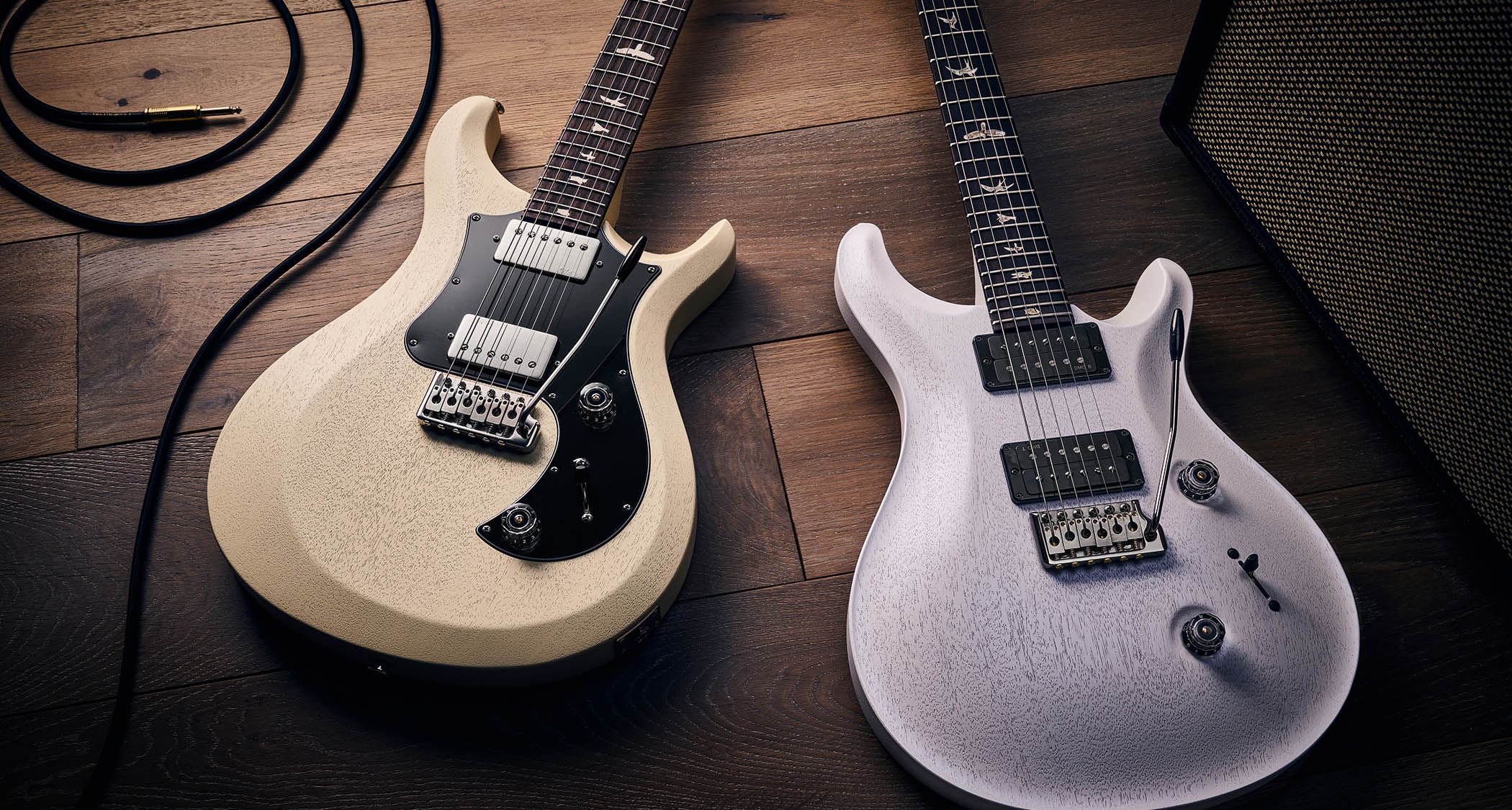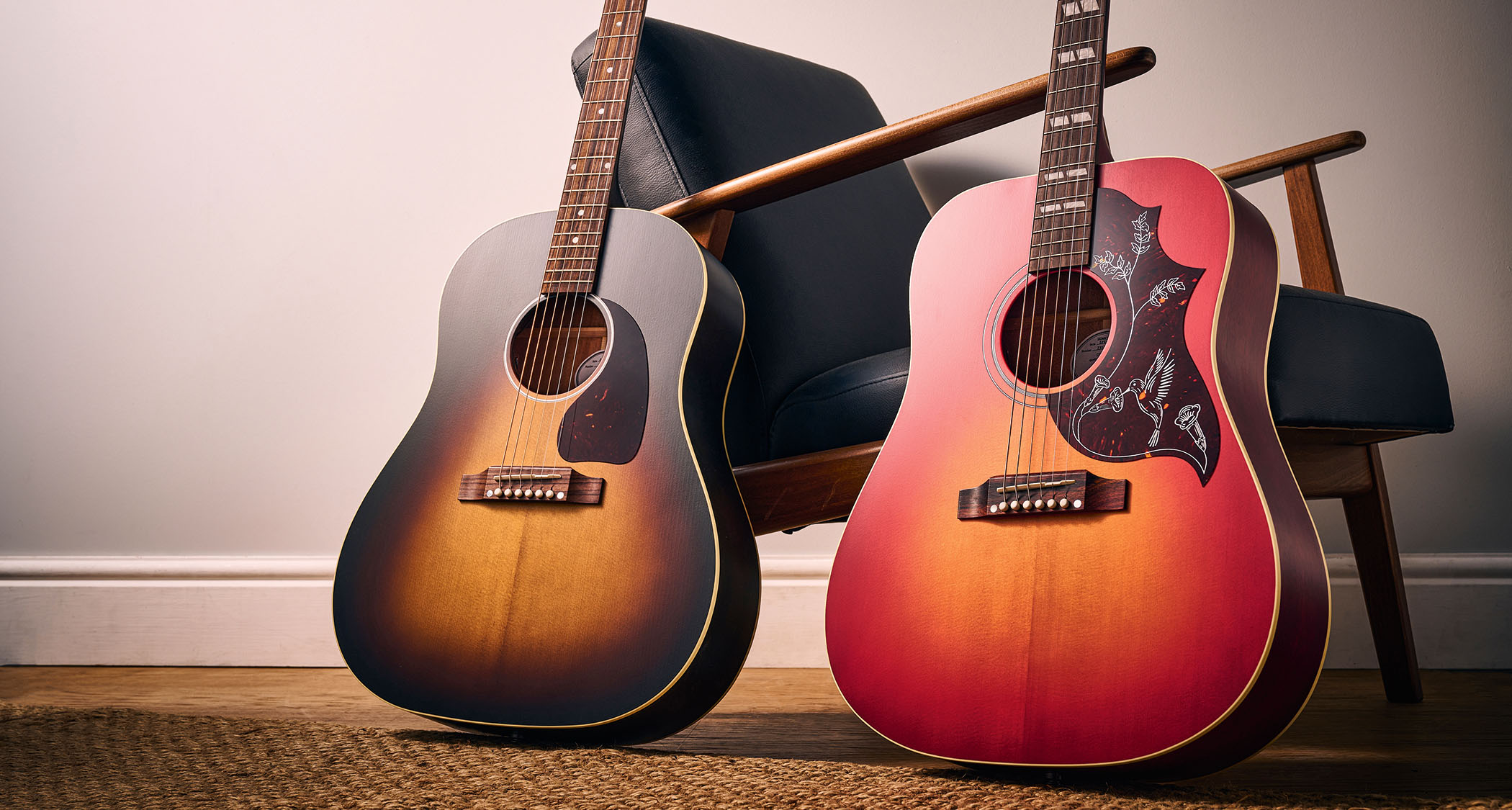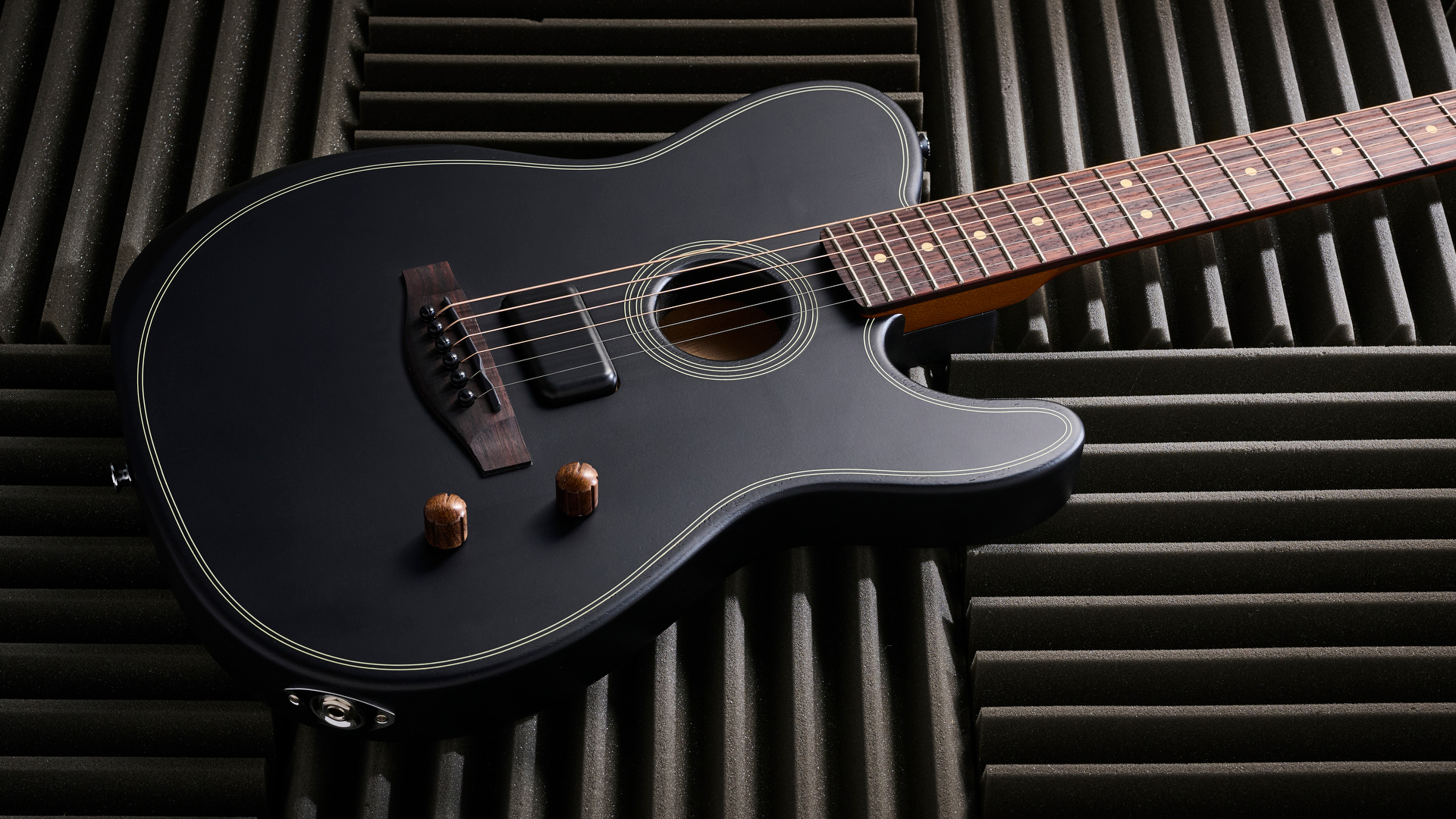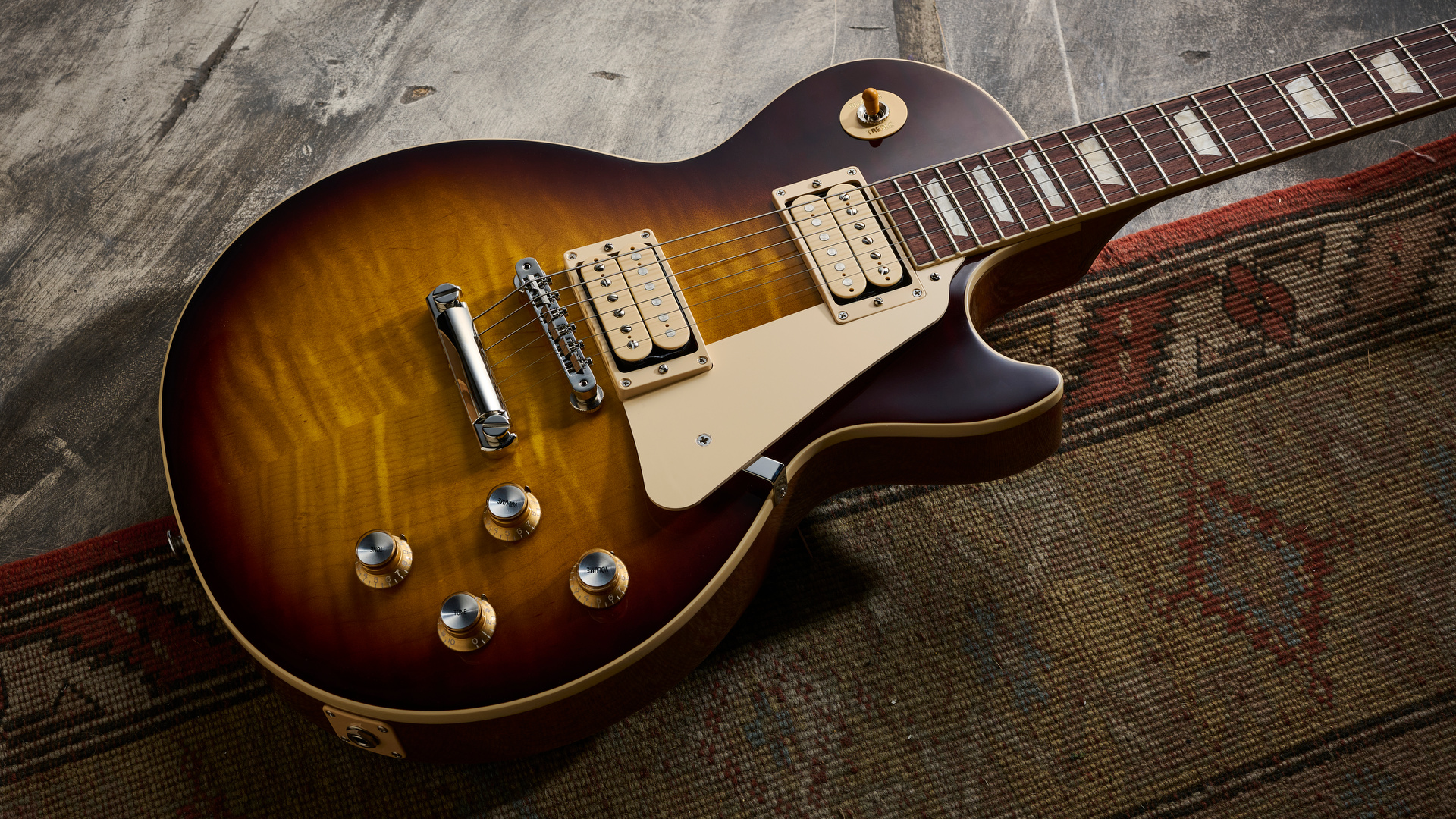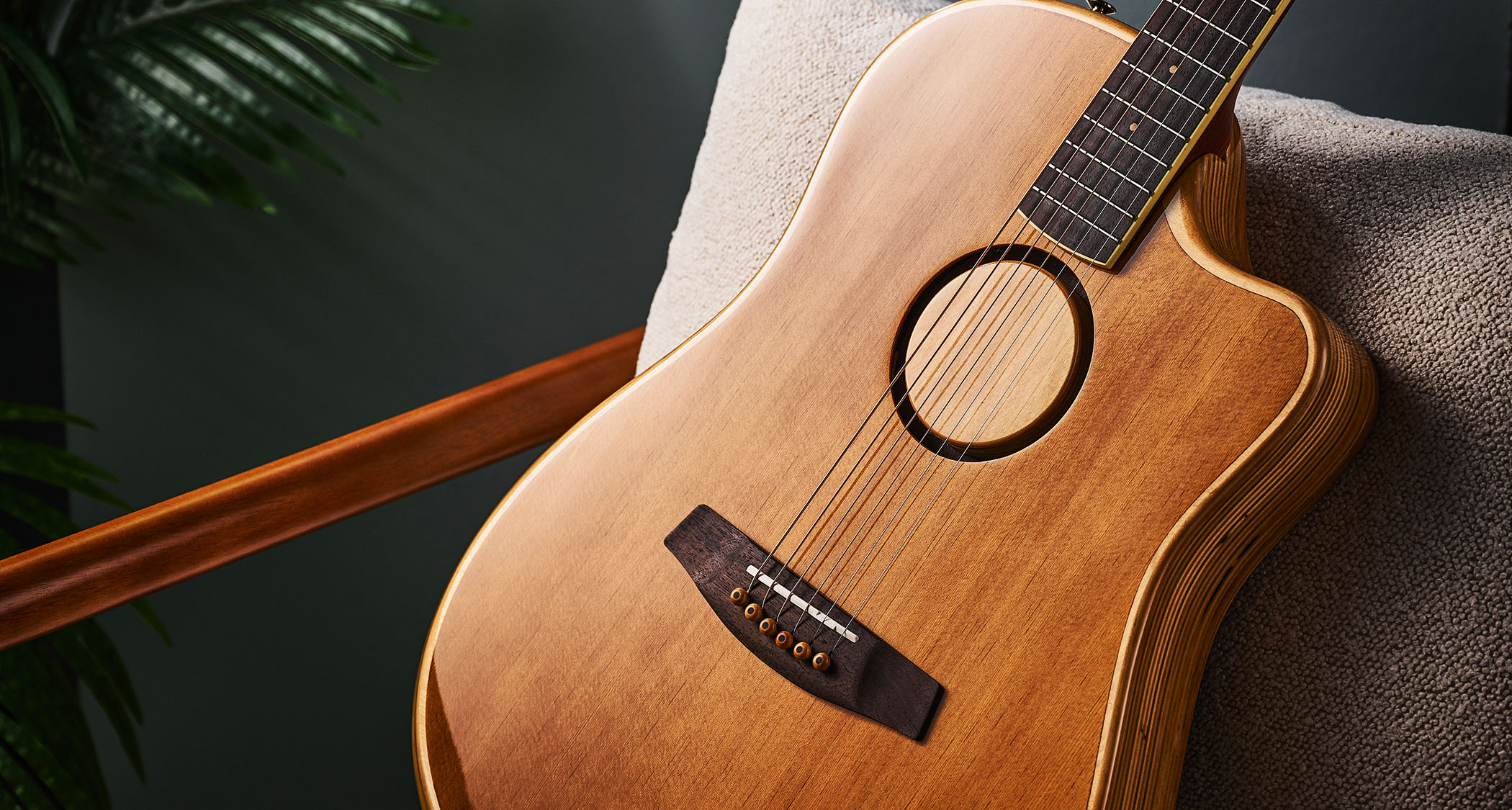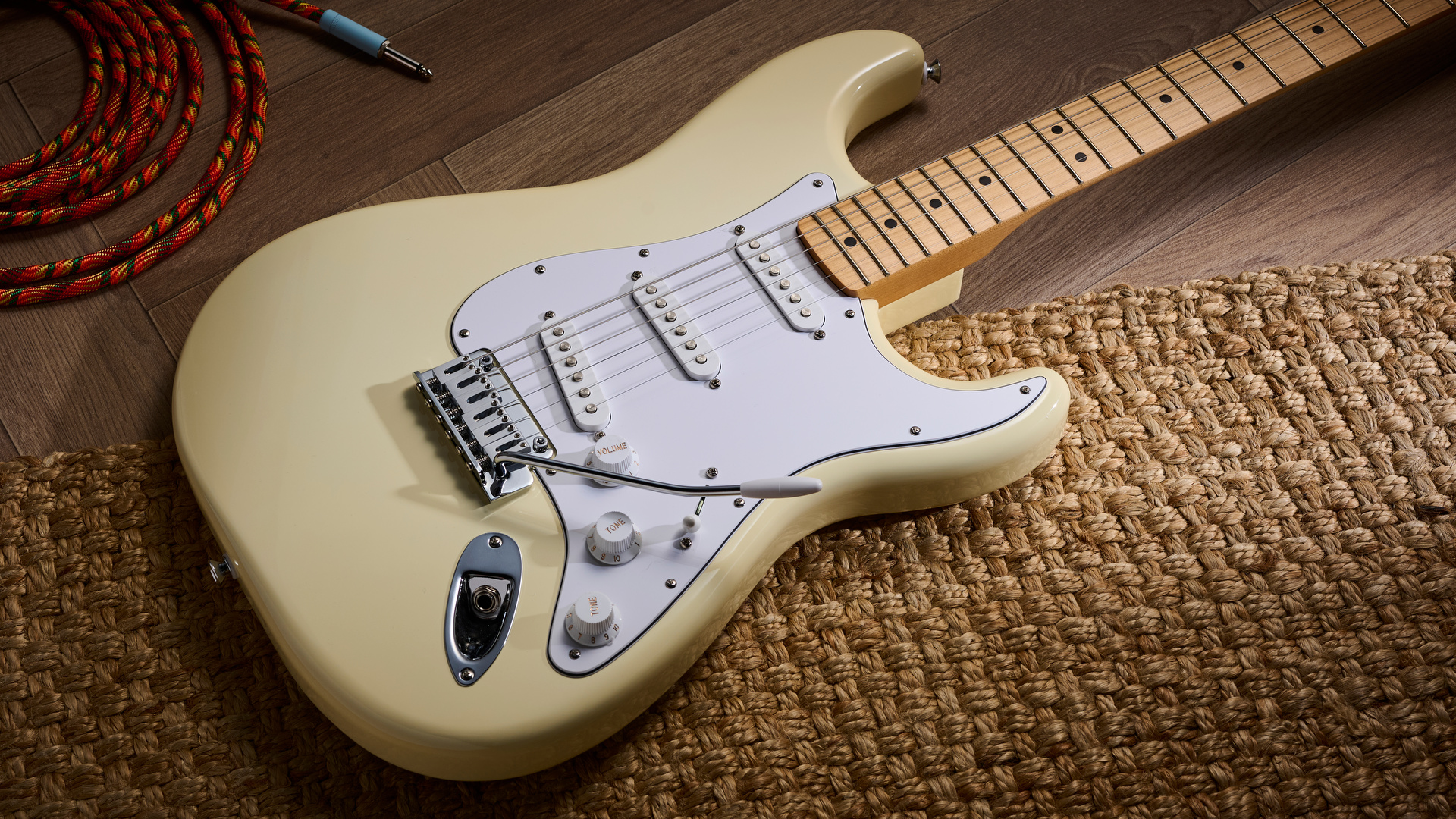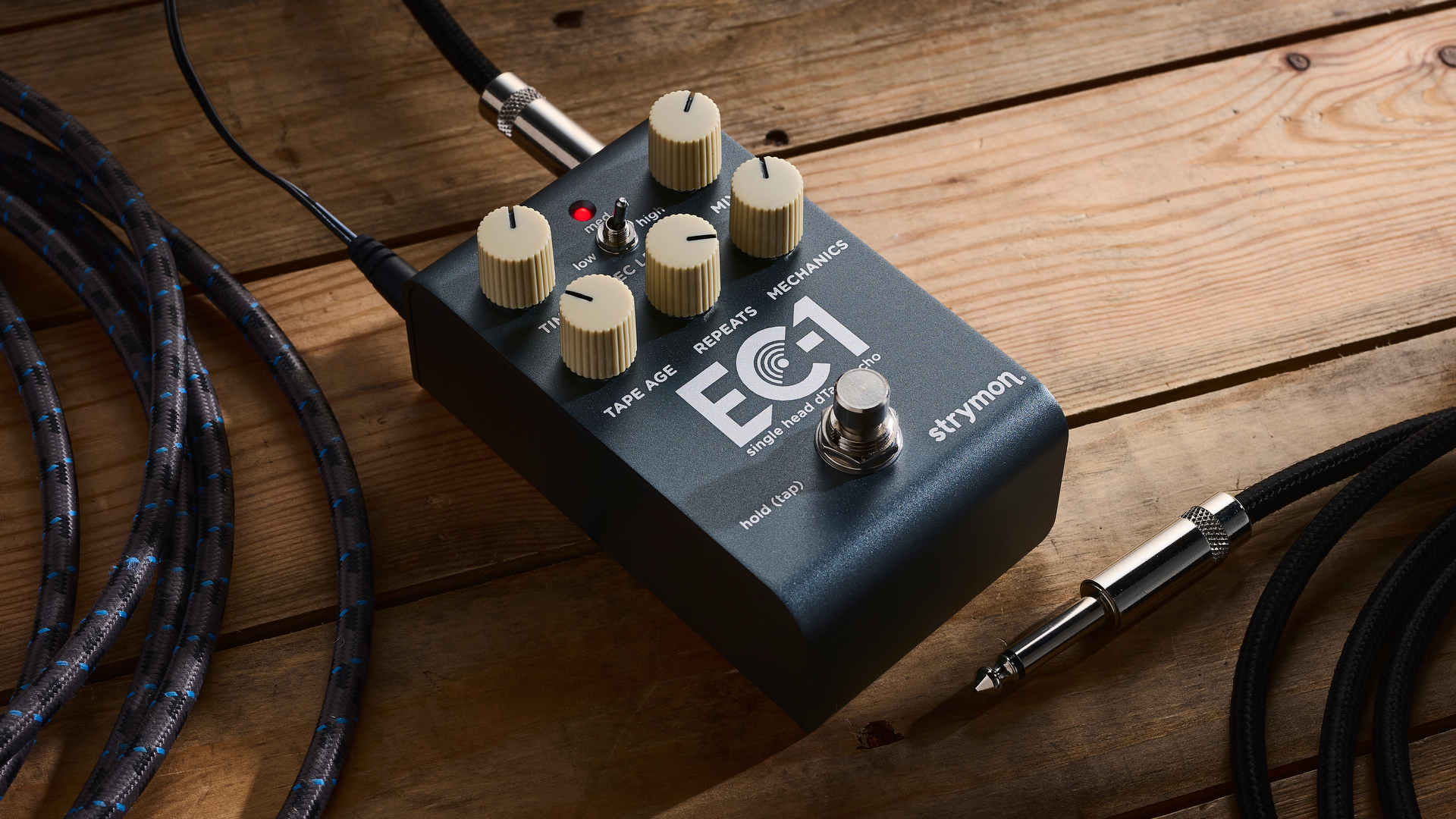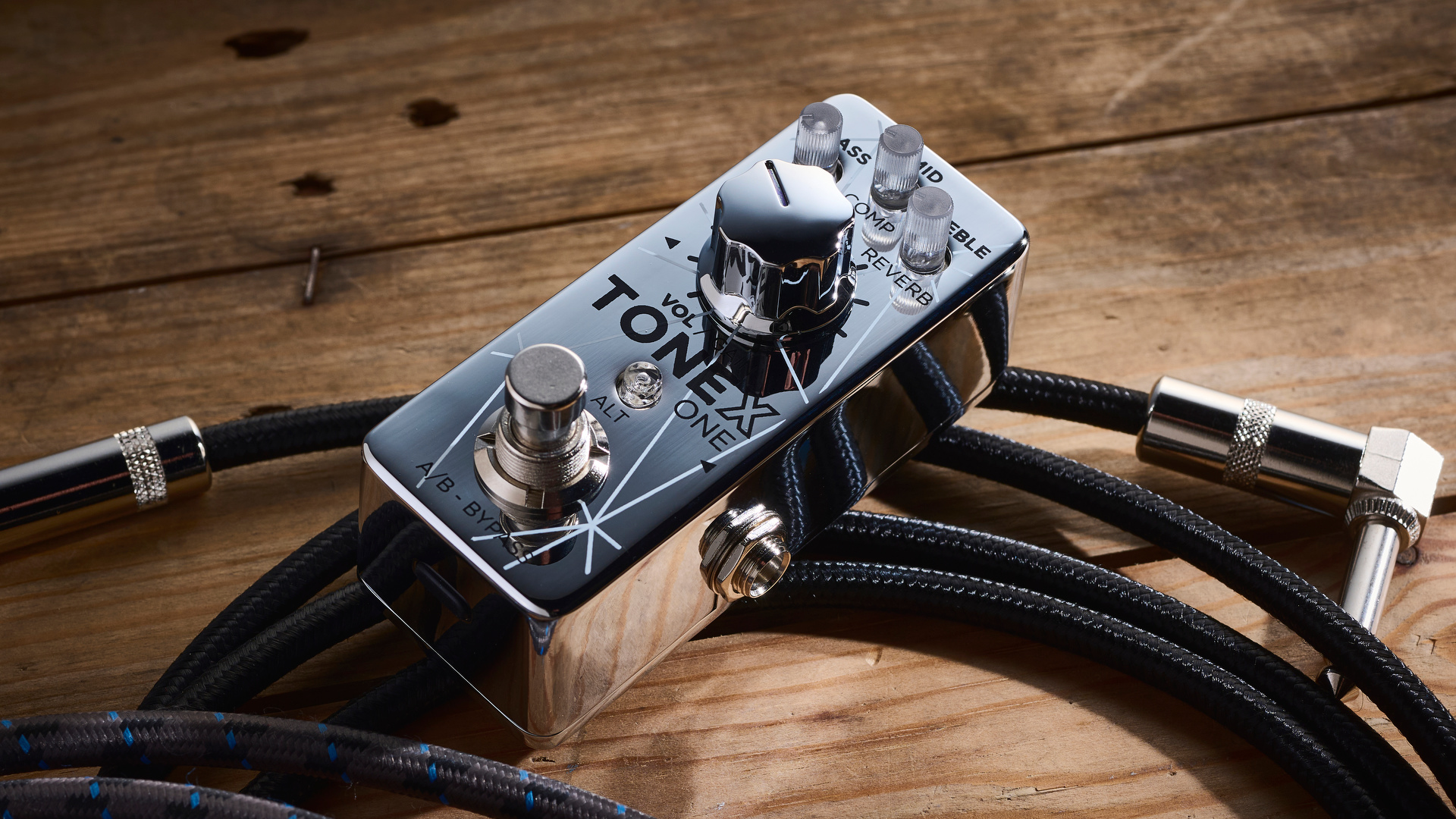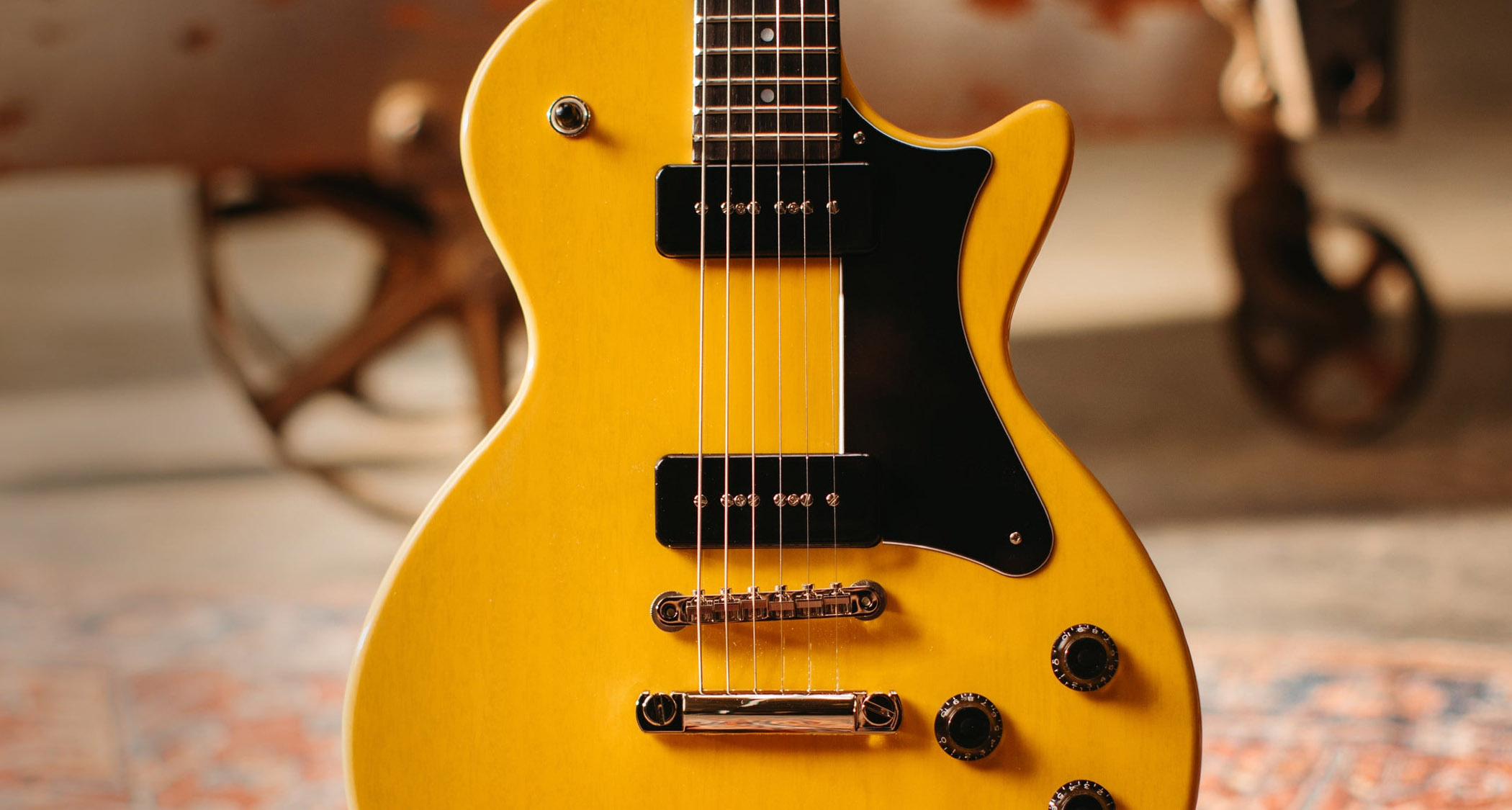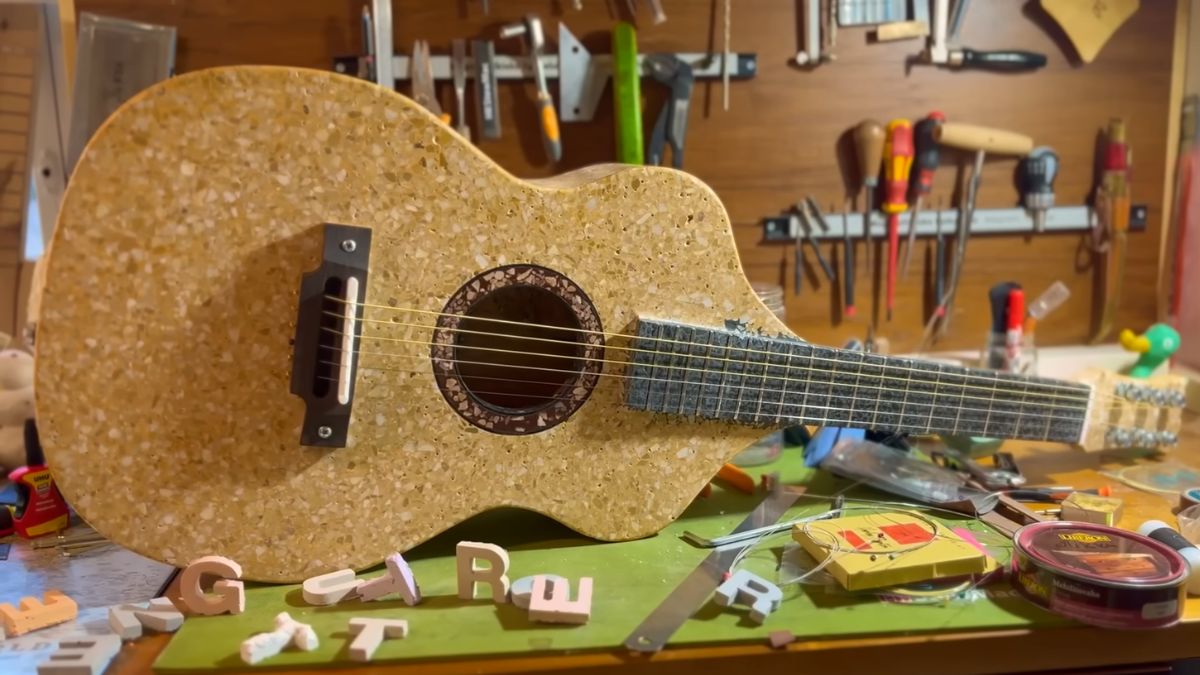Guitar World Verdict
An immaculately stylised version of the classic singlecut, the Macon is a perfect 10, with a neck that is unbeatable and an instrument that is a stunning example of boutique craft at its finest.
Pros
- +
Beautifully understated appearance and stunning build.
- +
The more vintage-aimed circuit and those WhiskerBuckers ensure it sounds as good as it looks.
Cons
- -
As ever, many of us can only dream of a guitar at this price…
You can trust Guitar World
The Gibson Les Paul is a cornerstone of the modern electric guitar. Obviously, Gibson offers many flavours in its production and Custom Shop ranges and there’s no shortage of small ’shop boutique makers who have their own particular takes and flavour combinations to tempt us with.
To illustrate such diversity, we’re taking a look at British guitar-making royalty, Patrick James Eggle, with this latest version of his Macon Single Cut.
The last time we looked at one of these models we awarded it a straight 10 and Guitarist Gold award. How will this one fair – and what’s changed? Well, one thing that hasn’t changed is the case-opening wow factor. This Macon is simply beautiful but in a very understated fashion so typical of Patrick’s guitars.
While Patrick and his small team will happily craft you a bling-tastic version, here the decoration is kept in check. The faded-looking colouration of the Lemon Burst top finish is the only gloss on the guitar, over the beautifully figured but not over-the-top maple cap. It’s the sort of figured maple that ‘plain top’ players like.
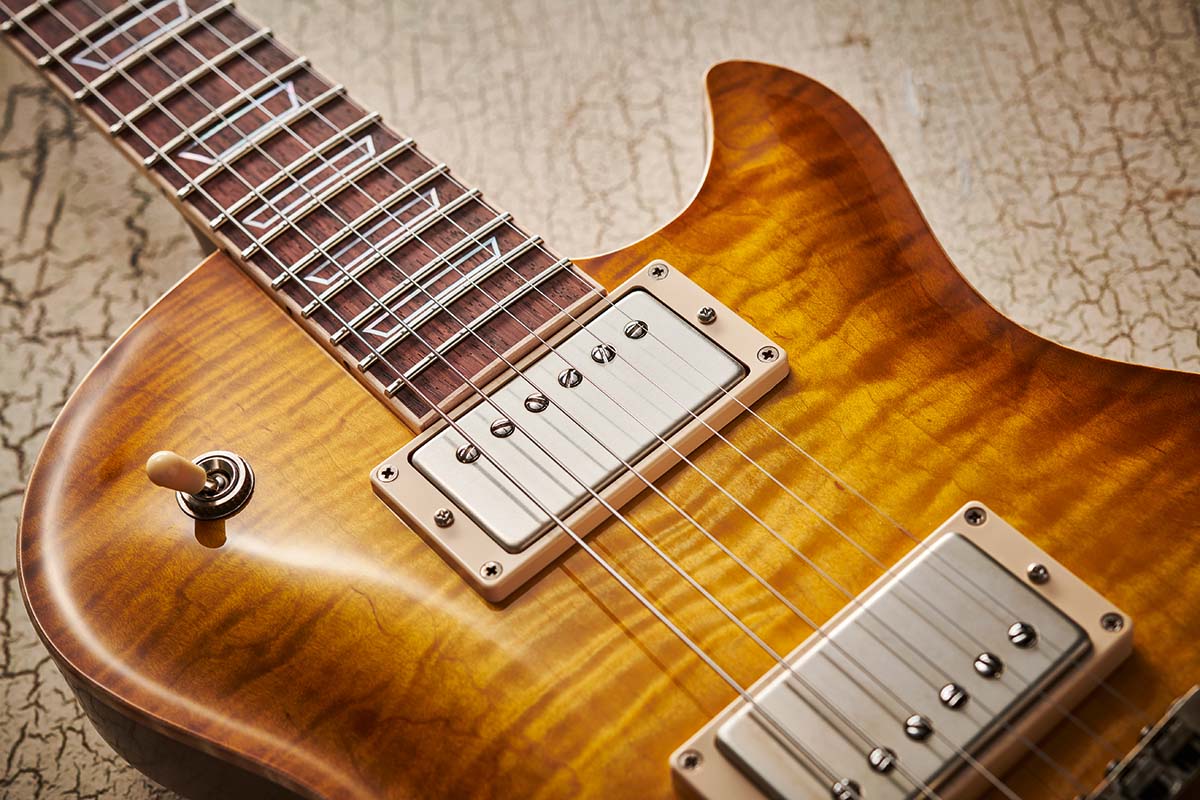
The top shaping is super smooth with a proper violin-like carve that runs to a quite deeply dished re-curve at the edge and is quite stylised at the cutaway. The craft is fabulous, from the centre-jointing of the top to the light radiusing on the ‘sharp’ top edge.
Turn it over and you’d be forgiven for thinking you might see a healthy area of belt-buckle wear. But no. The guitar might summon the ’Burst spirit, but the beautifully striped genuine mahogany back has a super-smooth satin nitro finish and clearly isn’t an old Gibson clone.
There’s an elegantly shaped rib-cage cut, for example, and an artfully dished curved heel area that mirrors the neck’s shaping as it goes into the body full width and extends under the neck pickup.
The curved-edge backplates, which appear to be gold-anodised aluminium, are immaculately laid into the surface and held with similarly muted gold-coloured screws. It all ties in with that golden maple front, the natural maple edge and fingerboard binding. The build sheet tells us that this model, like many Macons, is chambered to keep weight in check rather than alter its voice.
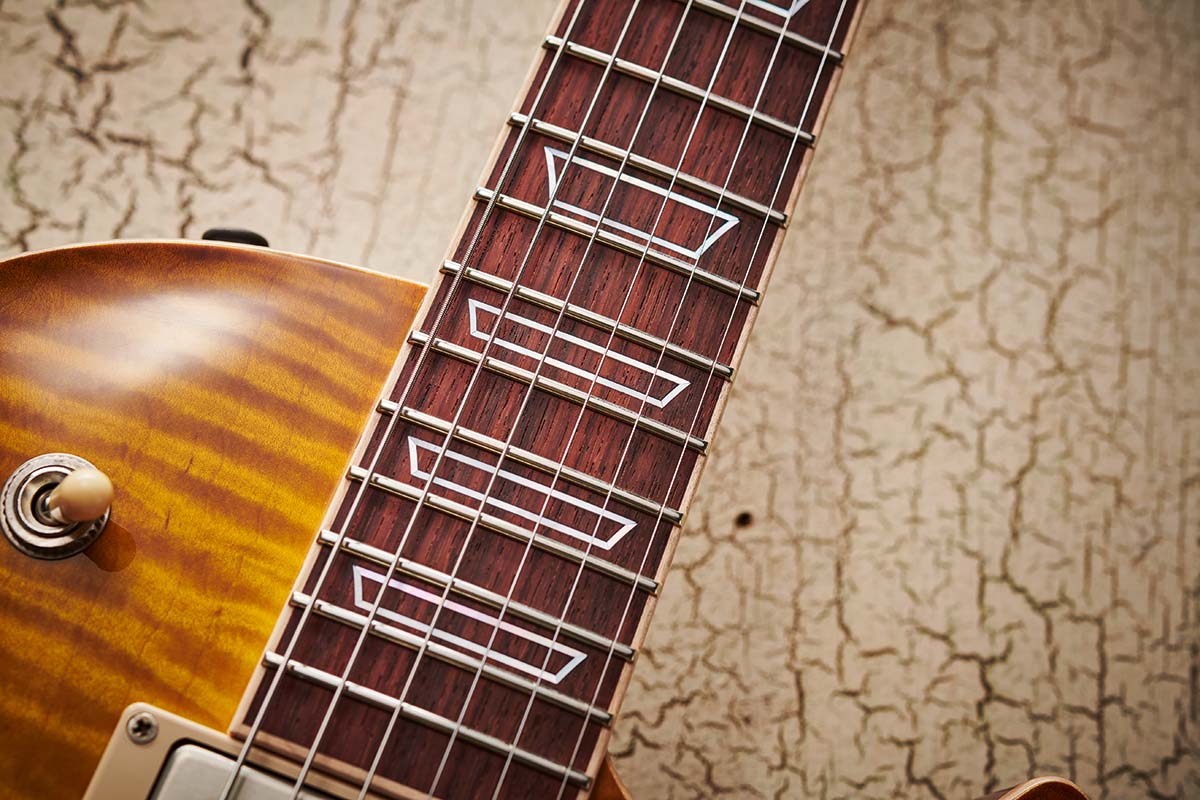
“The one you have there has a small amount [of chambering]. We use a small honeycomb pattern for the holes,” explains Pat. “The idea there, and I think I’m right, is that because the cambers in the body are much smaller than many people use – and we also have more holes as they’re smaller in diameter – we reduce weight a little but without so much loss of midrange, without scooping the tonality so much, if you know what I mean.”
If there is any bling here it’s just sprinkled on like the relatively fancy inlaid headstock logo and the artful ‘frame’ inlays – four separate pieces make up each frame – that simply outline Gibson’s famous trapezoids.
The headstock appears slightly longer and relatively narrow with less string splay than a Gibson head. It’s rosewood-faced, too, and lightly tapered in thickness, and the nut work is perfect – not a sharp line anywhere. Tuner choice is Hipshot’s lightweight ‘Classic Open’ set with ivory coloured buttons, lightly aged, like the bridge, tailpiece and even the strap buttons.
Once we’ve finished our review, this Macon will be on its way to Sound Affects, also the home of Cream T, so it’s no surprise to see the WhiskerBucker set here. These pickups are uniquely scanned directly from Billy F Gibbons’ actual Pearly Gates. It’s just another facet of this guitar that adds to the appeal – and also the cost, as these account for a £200 upcharge.
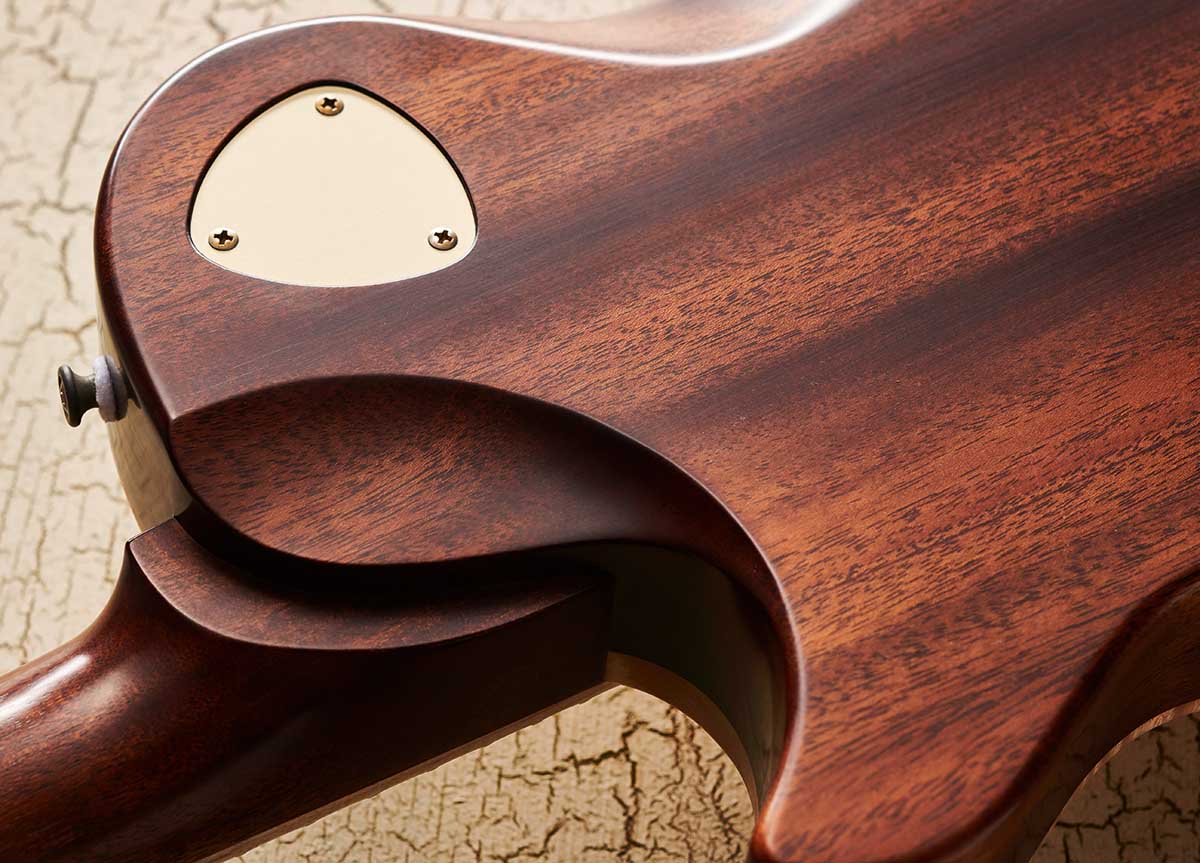
Feel & Sounds
If you’re in the market for a dream guitar like this, you want everything to be right. You’d expect the craft to be exemplary, which it is, but the detail we see more than translates to the Macon’s feel, and there’s little doubt this is a ‘player’, not a museum piece. And while Patrick might not have come up with the original concept, this version could sit alongside the great examples of the design.
That rear contour and the sculptured neck heel are both elements that refine the original. Then we get one of the best-feeling necks this writer has experienced
The weight is superb and that really affects the balance of the guitar. It sits with minimal body pull on your right leg when played seated and seems to become part of you strapped on; that rear contour and the sculptured neck heel are both elements that refine the original.
Then we get one of the best-feeling necks this writer has experienced: it’s far from a one-off, more a feature of virtually every PJE we’ve been lucky enough to play. It’s pretty big but rounded with quite relaxed shoulders, creating an impression that it’s smaller than it actually is, measuring 23.2mm at the 1st and 25.3mm by the 12th.
The worn-through neck finish (typically treated with Tung oil and/or Renaissance wax), not to mention the beautifully rolled edge maple binding, add to the illusion that this isn’t a new guitar. In fact, there’s nothing that feels new here – it all feels worn in.
The narrow tall fretwire is aptly named; it’s very close to the original Gibson wire in width but with more height. Each fret is faultlessly installed, the ends sitting over the maple binding and polished to a beautiful dome. There’s very little relief with a string height on the treble side of 1.5mm and slightly higher on the bass at 1.7mm.
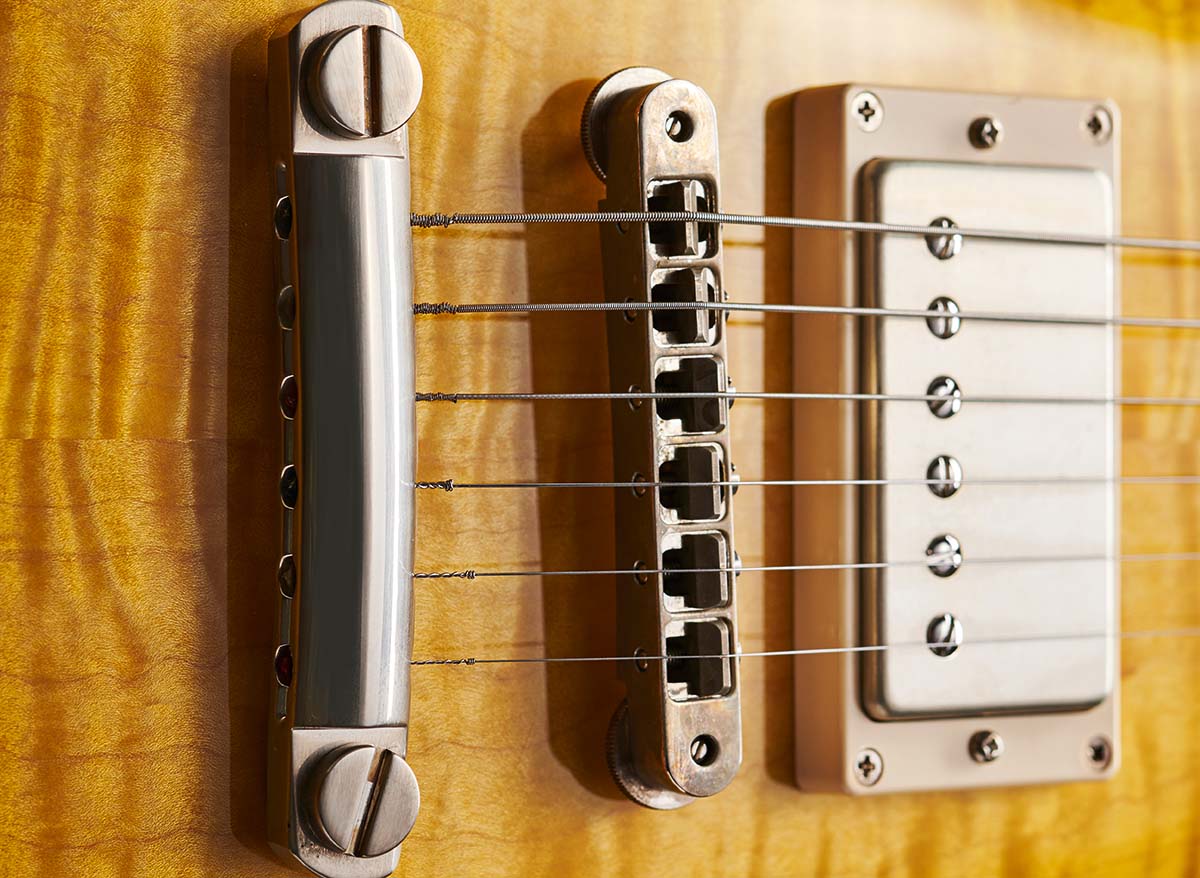
Just how good this guitar is becomes immediately apparent when we fire up our test rig with a reference Gibson Les Paul Classic – considerably lower cost, of course, but a striking illustration of the finely tuned craft that the Macon shows off.
Everything sounds bigger, deeper, clearer. There are no fancy sounds here, just that completely classic drive and with it a host of subtleties. If you wind everything full up, you’re missing the host of tones on offer.
With the treble tone switch pulled up you get a very noticeable treble lift and a little more bark; you really hear the effect the control circuit has in comparison. It’s great for a rocking solo
Does it sound like Pearly Gates? Well, we couldn’t compare, of course, but what we will say is that it’s a great example of the original style. It’s the depth of sound, the balance of bright to dark that makes it – or indeed any good example – almost limitless in terms of the available sounds. The cleans, for example, are stellar, not least with a volume reduction, and winding back the tone seems to thin the sound in a highly musical fashion.
On more rock-centred styles the neck pickup is almost too big, but for higher-fret lead lines it sounds beautiful, bell-like, while the sometimes difficult-to-match bridge… well, that alone might be the reason to buy this guitar. The decidedly non-vintage ‘blower’ switch is a neat addition.
With the treble tone switch pulled up you get a very noticeable treble lift and a little more bark; you really hear the effect the control circuit has in comparison. It’s great for a rocking solo, but very handy when recording, too. We’ve spent quite a bit of time with this Macon and just can’t find fault.
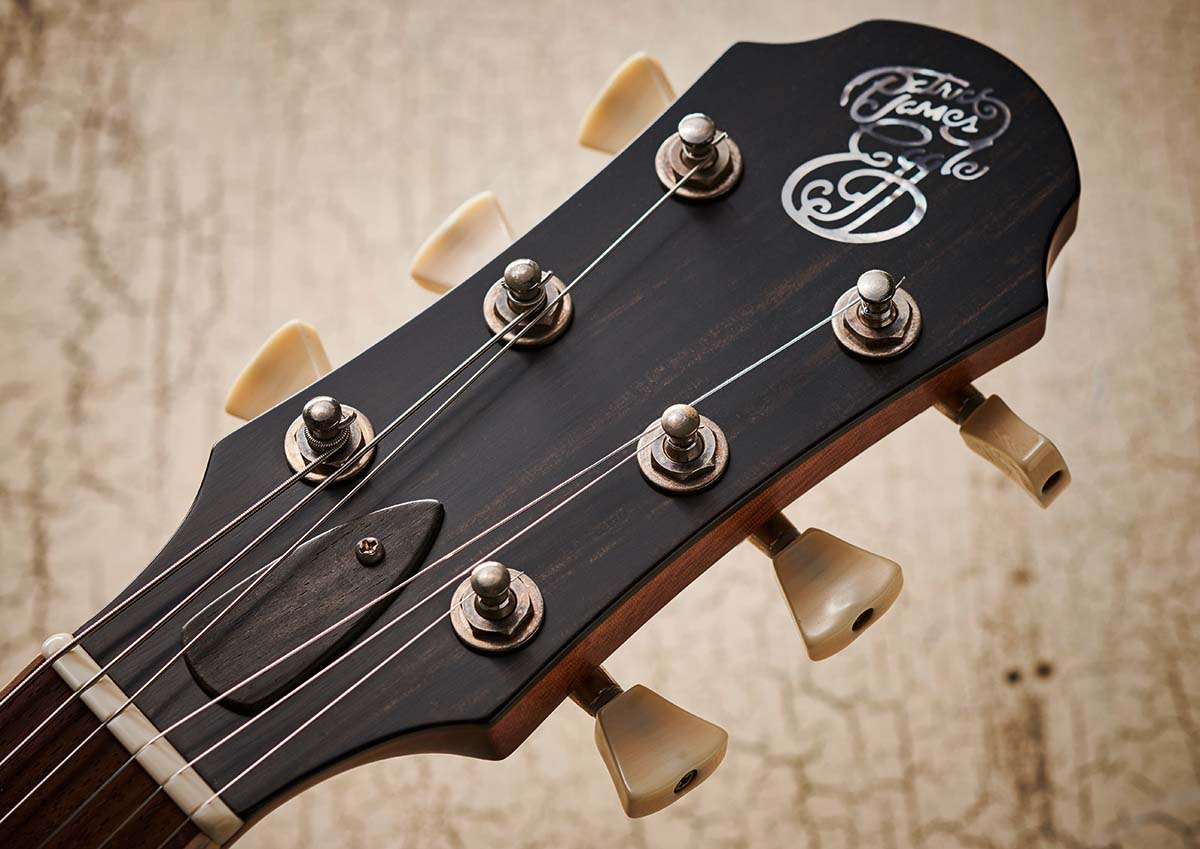
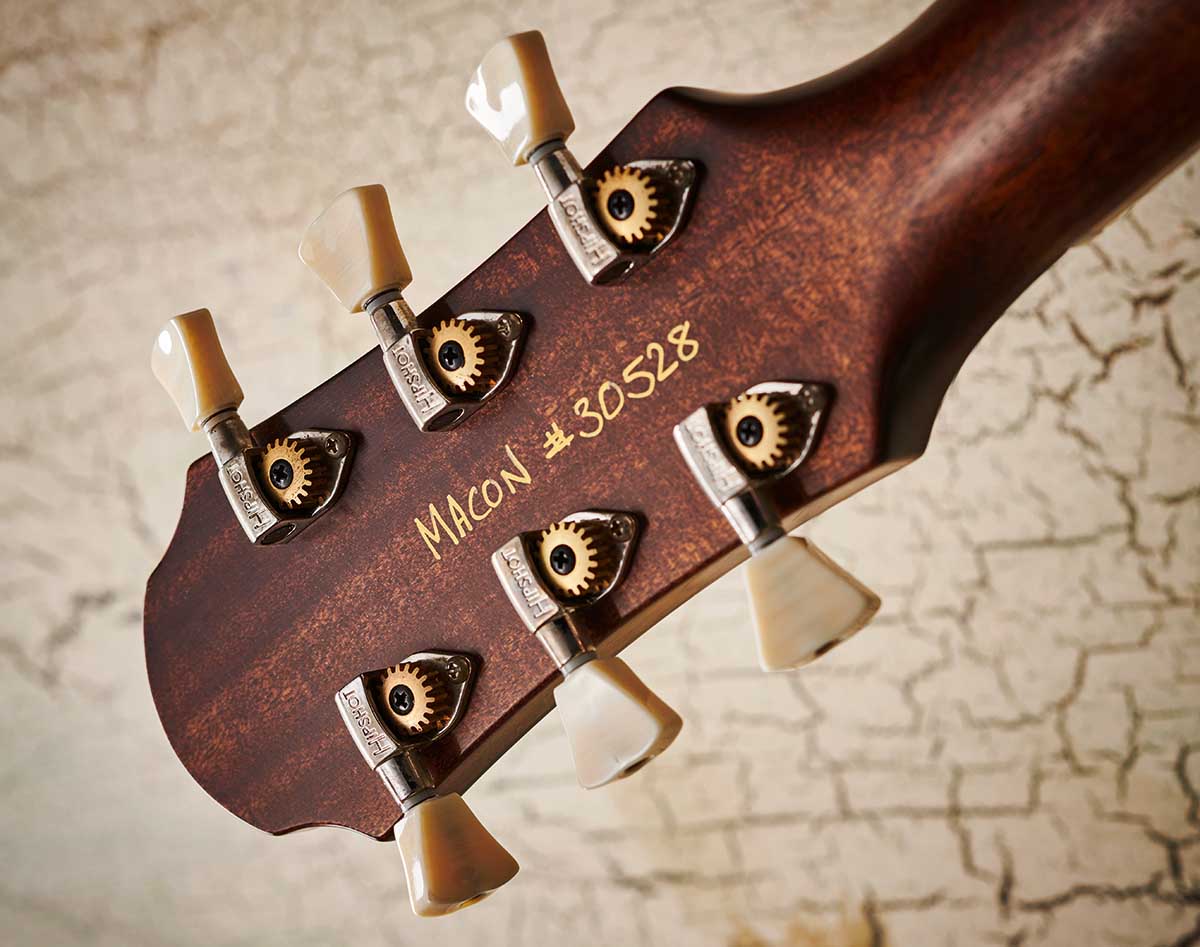
Verdict
At this price you could snag a Gibson Custom ’Paul that, for many, doesn’t get any better in terms of a new guitar. And it’s hard to argue with that proposition. This Macon, like many other ‘cover versions’ of the classics, simply takes the chord chart and melody and creates a subtly stylised version.
But that’s where our analogy falls short. Somehow, Patrick has taken the inspiration and made it very much his own with an altered appearance but a sound and – hugely important to the player – a feel that many of us can only dream of. And, yes, we’ve given this another 10/10 Gold award. If we could have given it an 11, we would have.
Specifications
- PRICE: £4,500 (inc case)
- ORIGIN: UK
- TYPE: Single-cutaway, set-neck lightly chambered electric
- BODY: Genuine mahogany with fl amed Eastern Red maple carved top
- NECK: 1-piece mahogany with extended ‘foot’, ‘Fat C’ profile, glued-in
- SCALE LENGTH: 625.5mm (24.625”)
- NUT/WIDTH: Bone/42.8mm
- FINGERBOARD: Figured maple bound rosewood with ‘frame’ inlays; 305mm (12”) radius
- FRETS: 22, medium/tall Jescar 55090
- HARDWARE: Aged nickel, Milled aluminium ABM tune-o-matic-style bridge with steel saddles, ABM milled aluminium stud tailpiece, Hipshot Classic Open tuners with ivoroid buttons
- STRING SPACING, BRIDGE: 51.5mm
- ELECTRICS: Cream T BFG WhiskerBucker set, 3-way toggle pickup selector switch, individual pickup volume and tone control, ‘blower’ switch on treble pickup tone control
- WEIGHT (kg/lb): 3.73/8.2
- OPTIONS: The base price here is £4,200. The ’board binding (£100) and Cream T pickups (£200) account for the upcharges. As with most smaller makers, custom options abound. Just ask!
- RANGE OPTIONS: Macon Junior (from £2,800), Macon Special (from £3,200)
- LEFT-HANDERS: Yes, no extra cost
- FINISHES: Lemon Burst gloss top, natural/dark aged back and side, worn-through neck finish. All nitrocellulose
- CONTACT: Patrick James Eggle

Dave Burrluck is one of the world’s most experienced guitar journalists, who started writing back in the '80s for International Musician and Recording World, co-founded The Guitar Magazine and has been the Gear Reviews Editor of Guitarist magazine for the past two decades. Along the way, Dave has been the sole author of The PRS Guitar Book and The Player's Guide to Guitar Maintenance as well as contributing to numerous other books on the electric guitar. Dave is an active gigging and recording musician and still finds time to make, repair and mod guitars, not least for Guitarist’s The Mod Squad.
“It holds its own purely as a playable guitar. It’s really cool for the traveling musician – you can bring it on a flight and it fits beneath the seat”: Why Steve Stevens put his name to a foldable guitar
“Finely tuned instruments with effortless playability and one of the best vibratos there is”: PRS Standard 24 Satin and S2 Standard 24 Satin review
